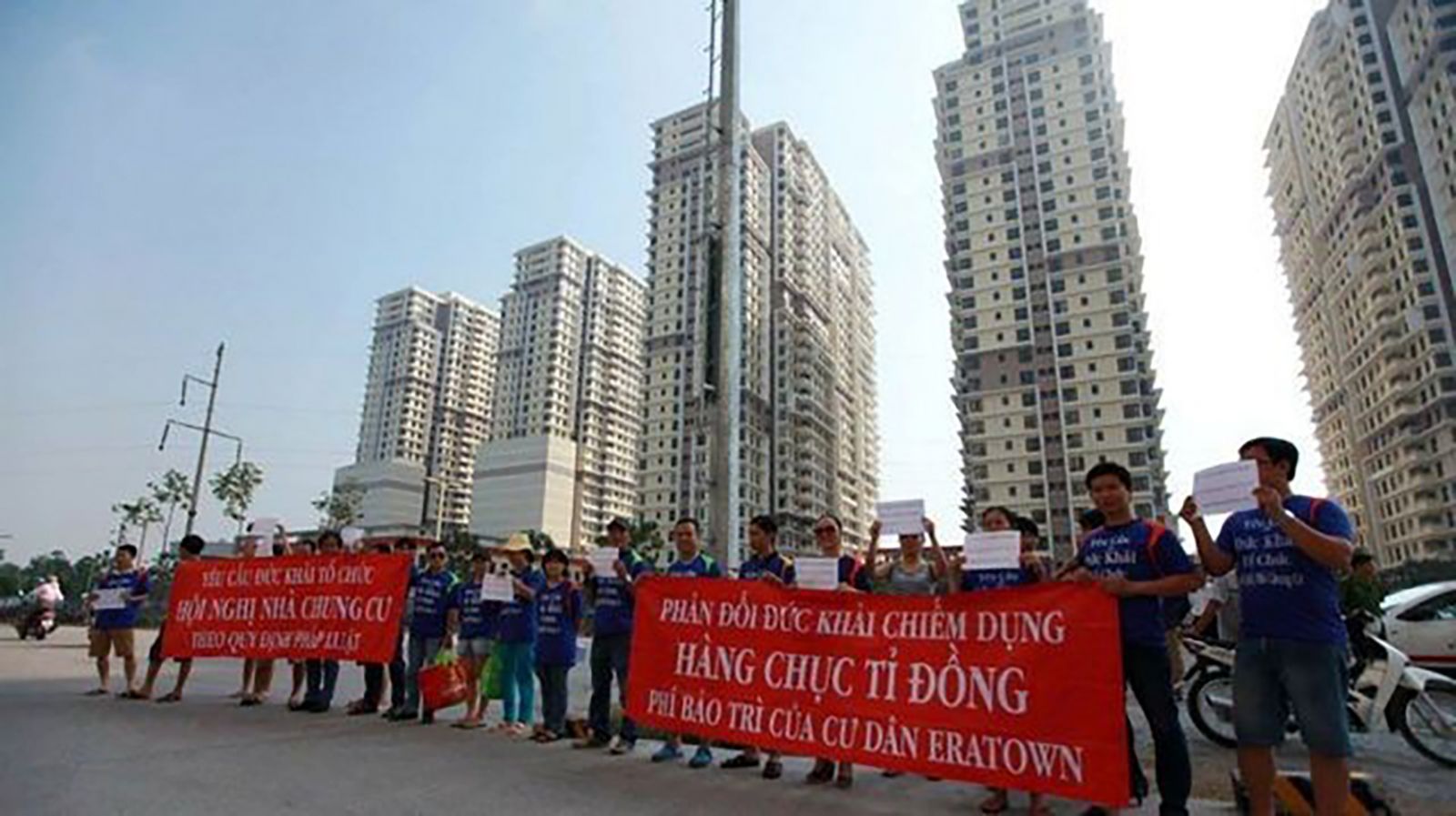Preventing misappropriation of apartment maintenance funds
According to Mr. Nguyen Duy Thanh, Chairman of the Board of Directors of Global Home Management Company, certain members of the management board of apartments consider their position as a career, using residents' confidence to embezzle funds from the maintenance and service fee accounts.
Those who practice this "profession" often have a thorough understanding of the law and understand the inhabitants' psychological demand for rights guards. They are readily elected to the management board of apartments, win trust, and then engage in unscrupulous tactics such as collaborating to increase maintenance and service fees and failing to provide transparent financial reporting.
Lack of Legal Framework
According to Mr. Thanh, the apartment management board's operational approach creates a chance for corruption.
Currently, there are three operational models. The first is a civic organization model, in which the board represents citizens and negotiates contracts with management corporations to monitor their actions. This model adheres most strictly to legal restrictions and is characteristic of projects with a small number of flats, operational and maintenance money, and a significant risk of deficit.
The second model involves the board managing its own finances and directly contracting for services such as cleaning, security, and reception, as well as maintenance. This model is prevalent among many apartment management boards.

Regulations on the financial management of apartment management boards are still not stringent, leading many to find ways to “sneak” into the board for personal gain, adversely affecting the interests of the residents.
The third model is a hybrid, where half of the responsibilities are outsourced to management companies, and the board handles the rest. Often, in large-scale projects with high service fees and substantial revenues, the board prefers to manage finances directly. This can lead to negative issues and a risk of fund deficits.
As boards manage their own finances, they require a supervisory system in accordance with business law or a public authority model. However, the current legal framework for management boards is unclear.
Management boards operate like joint-stock companies, governed by business law, tax regulations, procurement rules, account opening, and issuance of input invoices and VAT, as well as irregular income tax.
Conversely, this organization lacks specific regulations for procurement and internal financial management.
Closing Gaps in New Law Enforcement
The Ministry of Construction is now preparing a circular on apartment management, but financial management laws for boards have yet to be addressed. To remedy these loopholes, state management authorities should establish specialized financial management and supervision regulations.
Mr. Thanh believes that the Ministry of Finance, tax authorities, and auditors should work together to create a special circular governing financial management, accounting, and maintenance fund management in flats, including financial control methods.
Furthermore, current consequences for board malfeasance are inadequately deterrent; many boards break the law but are seldom punished criminally.
Decree 16, issued on January 28, 2022, clearly stipulates penalties for board misconduct. However, most violations at many apartments are only revealed when residents report them. Management at these apartments lacks thorough attention from competent authorities to prevent embezzlement.
Even when residents report misconduct by the board to local authorities, these bodies treat it as a civil dispute and refer it back to the ward, leaving the matter to be handled internally by the apartment.
Therefore, to address the root of board misconduct, embezzlement, and misappropriation, the law needs to be more stringent and enforce penalties for violations more severely.
Local state management bodies should step in, monitor, detect, and address apartment violations promptly, prevent adverse consequences, and ensure social security and order for the residents.
Additionally, “gaps” in maintenance fee management also need timely resolution. For instance, regulations should mandate that all maintenance fund transactions be conducted via bank transfers, with detailed reporting and accounting of expenses, and include resident contributions.
Moreover, the law should stipulate that an individual can only be a board member on one project at a given time to prevent those who treat board membership as a profession for personal gain.








